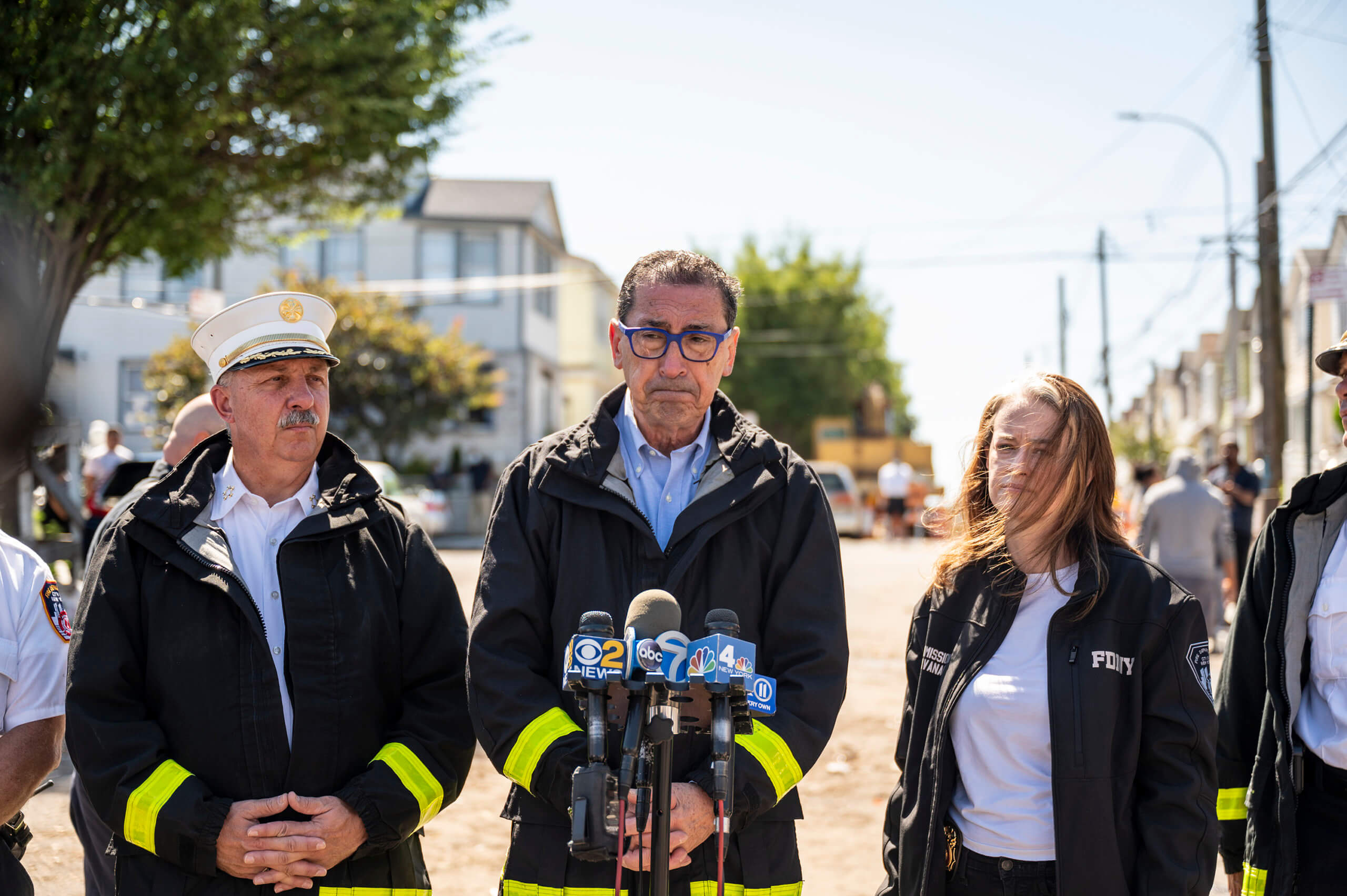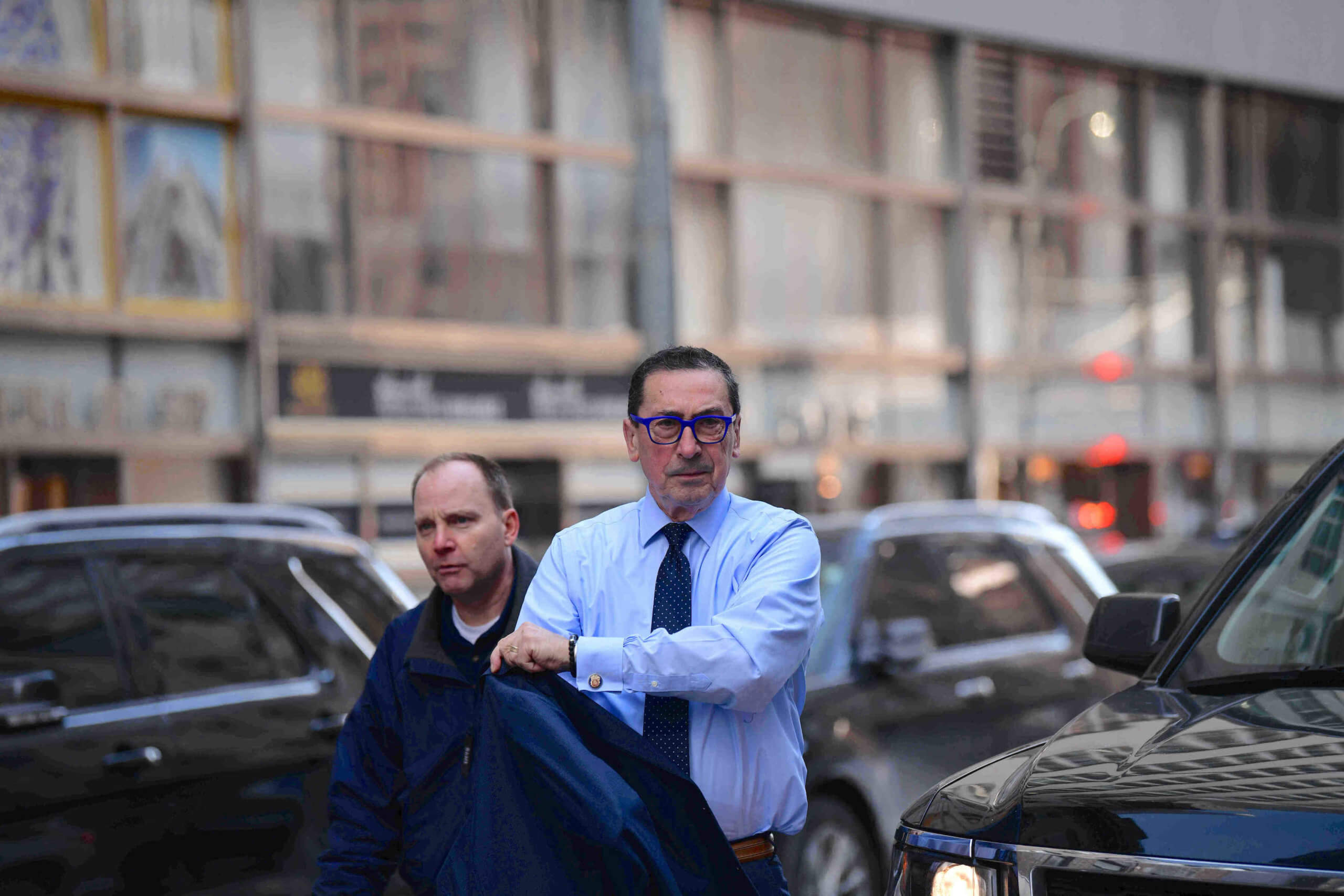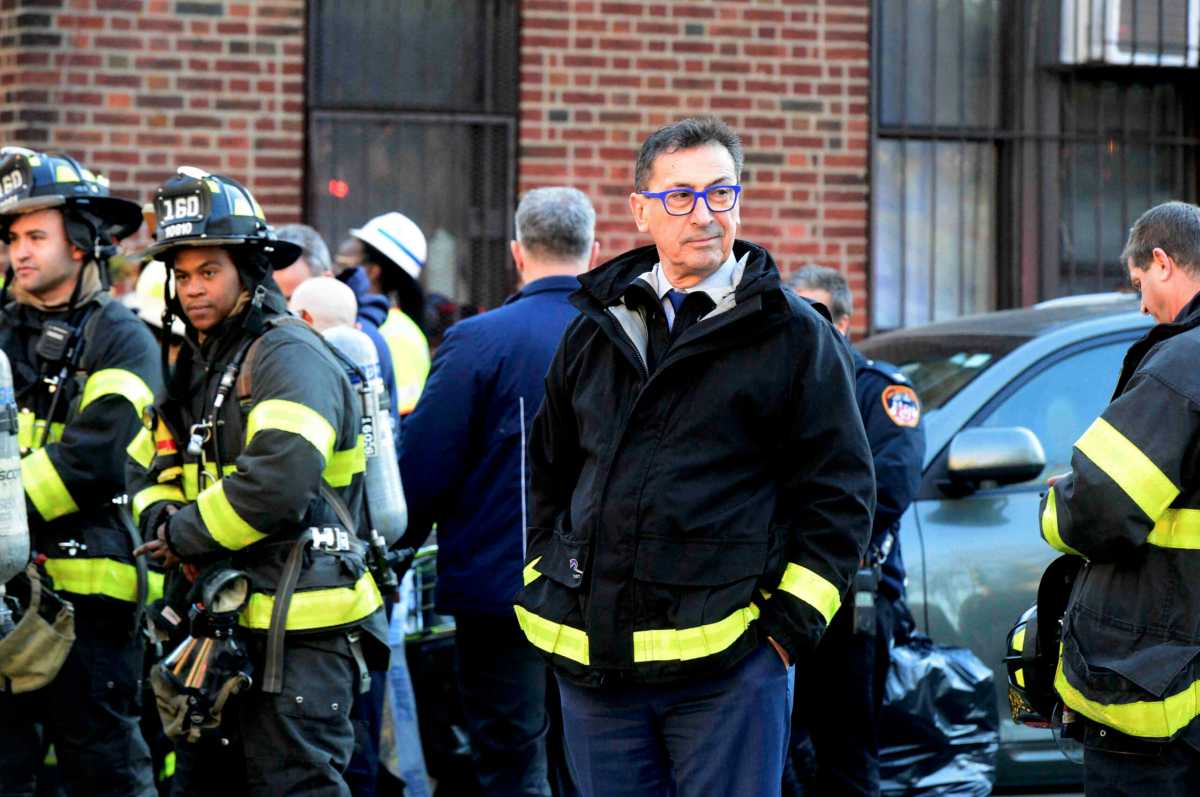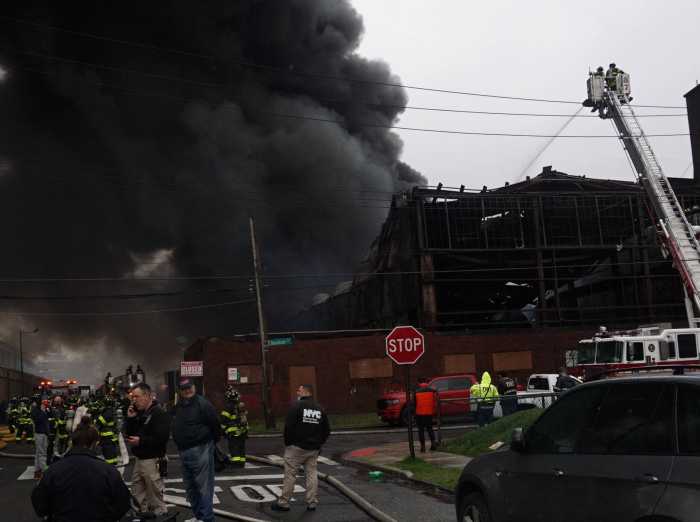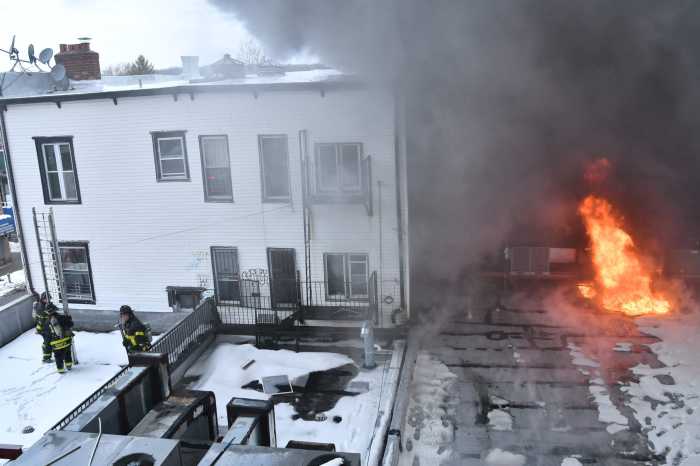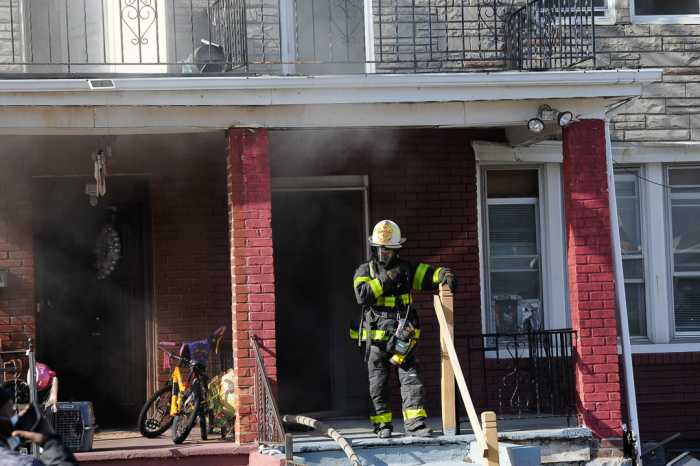After 53 years on the job, FDNY Commissioner Daniel Nigro will retire from the FDNY on Feb. 16.
Then it’s off to Disney World with his family including four grandchildren – a well-earned segue from the Fire Department, which for Nigro was more of a lifestyle than a career.
After having survived more than five decades in the fire service, including escaping death on 9/11, he is rumored to be succeeded by his Deputy Commissioner for Legal Affairs Terryl Brown, 60, who has served 12 years in her capacity and is said to to Mayor Eric Adams’ pick for the role. But Nigro says not so fast; Laura Kavanagh, his first deputy commissioner might also be chosen. Until Adams names a successor, Kavanagh will serve as interim commissioner — making her the first woman to lead the FDNY in its history.
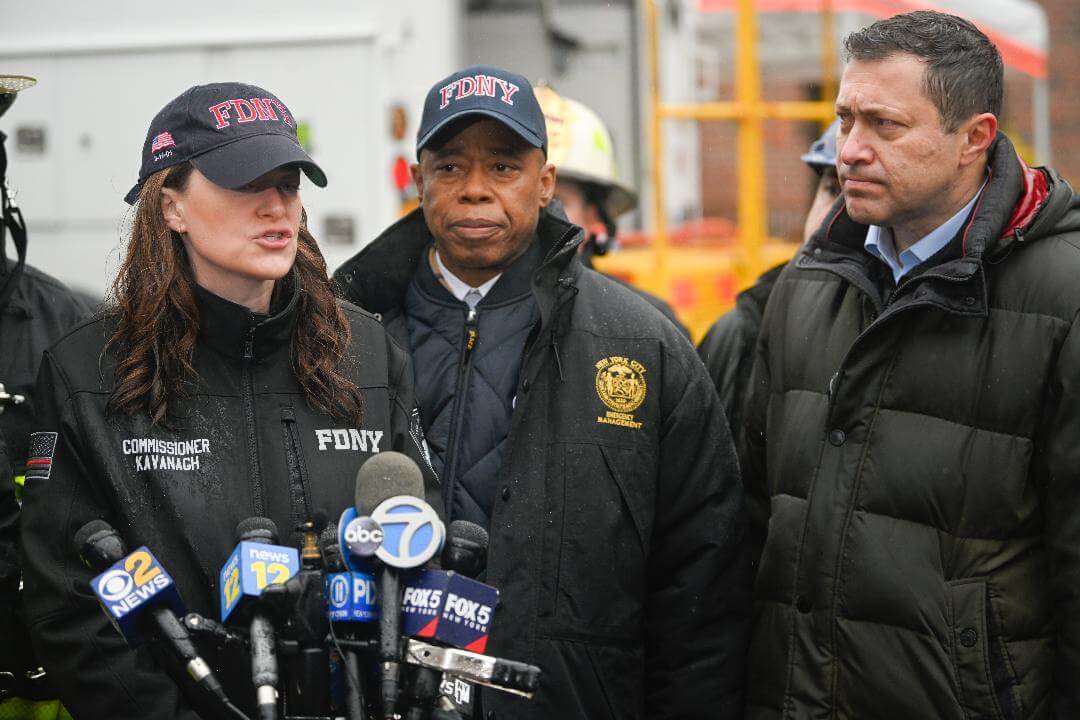
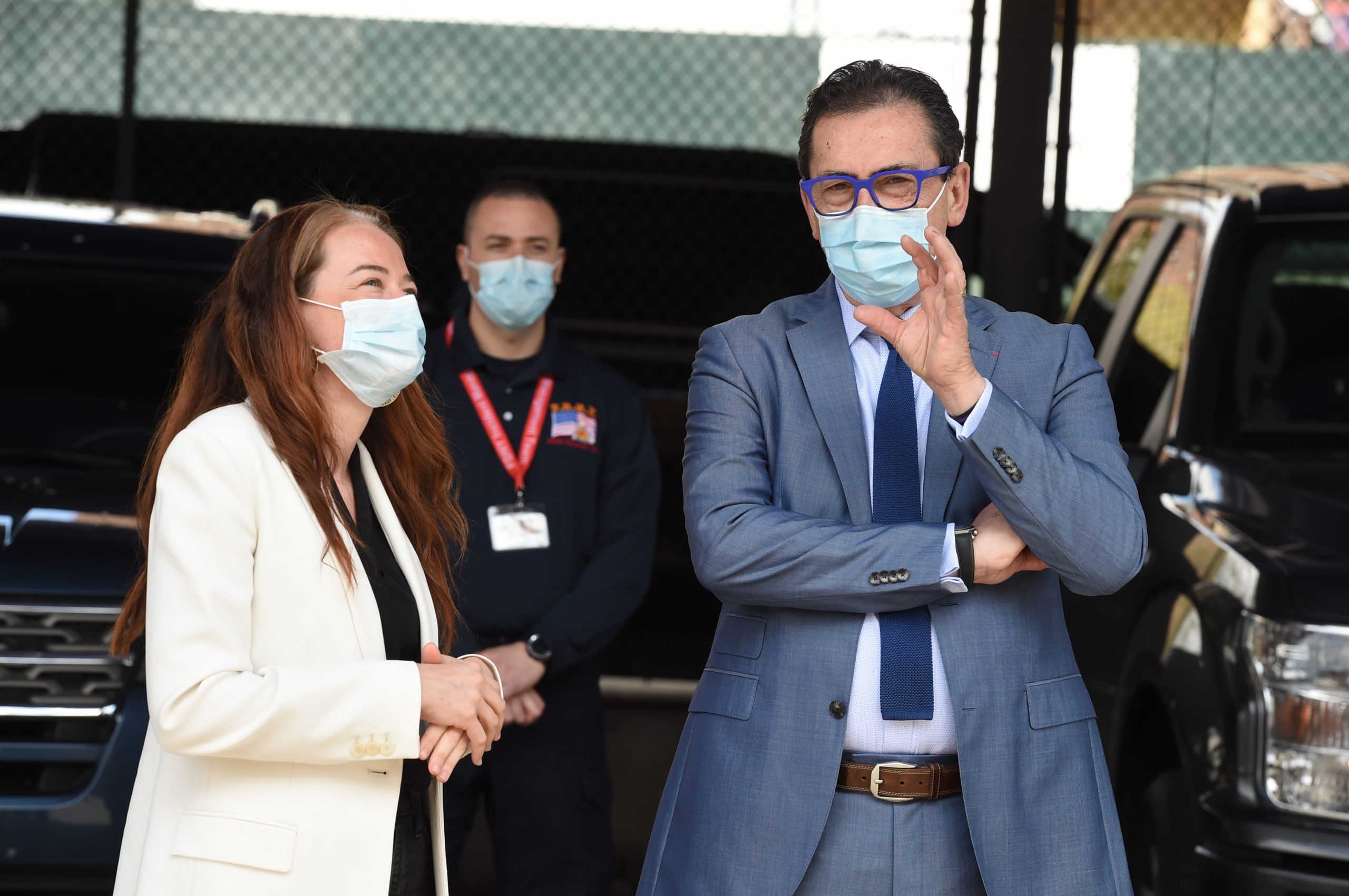
Nigro, now 73, presided over some of the most tumultuous changes in the FDNY, having been elevated to Chief of Department after his close friend and golf partner Chief Pete Ganci was killed along with many of the top FDNY leadership on Sept. 11, 2001 when the north tower of the World Trade Center fell on them.
Nigro survived the collapses of both towers as he and an aide did reconnaissance for the command post, escaping the torrent of debris that fell from the south tower during the first collapse and being on the opposite side of the World Trade Center when the second collapse killed most of the top FDNY commanders.
Since then, his career has been defined by that fateful day, on which 343 firefighters were killed and hundreds more would later perish from illnesses they contracted while working on the rescue and recovery effort months after the attacks.
Many of those firefighters and commanders who died on 9/11 were Nigro’s friends. While he experienced many fires and disasters, he told the New York Times in 2014 when he became commissioner, that many of those memories were “a blur” and “9/11 came and that was it.”
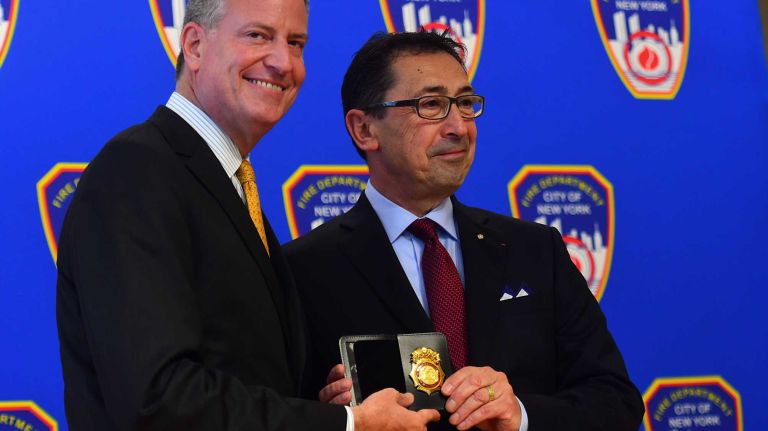
But it was that blur in time that helped shape Nigro to be strong enough to see the FDNY and the city through its toughest times and its greatest loss.
Nigro spoke to amNewYork Metro as he gets ready for what is to be his last day in the FDNY.
From firefighter’s son, to fire commissioner
Nigro is the son of Captain Dan Nigro Sr., a grizzled veteran of numerous fires in New York City. Nigro Sr. would tell his children over bowls of pasta and sauce at family dinner, the stories of fighting tenement blazes, factory conflagrations and rescuing people.
Nigro, the grandson of Italian immigrants who passed through Ellis Island, knew he was destined to be a firefighter in the tradition of his dad.
Nigro was especially influenced to be a firefighter after he witnessed as a teenager the massive 1966 fire that killed 12 firefighters on East 23rd Street in the Flatiron District. He was especially taken by the camaraderie of the firefighters and their commanders on that sad day as he watched the band of brothers carry the bodies of the dead, one of the saddest days in FDNY history at that time.
“But I knew that would be my career,” Nigro reflected, remembering his father telling him about the good times, as well as the difficult ones. “He showed me there is more to it than that,” he said. “All these fires have names and yes, there is a lot of grief, but that is part of this great job and sadness that comes with it.”
What his dad also taught him was to “emulate those you respect, and don’t act like those who don’t show respect.”
“You had to know who to copy and who not to copy,” Nigro reflected, remembering that he wasn’t even sure he would get the job, but “then the letter came.”
“My dad was a big influence on me as were all the folks who I worked with over the years,” he added.
For his first 10 years, Nigro battled tenement fires in Manhattan, Bronx and Queens. Some of those resulted in deaths or injuries — but all were a learning experience that would help Nigro shape training and construction standards that would minimize casualties in the future.
For Nigro, every time a lesson is learned, a new lesson must be taught. An important lesson was how to deal with loss and sorrow that continues in a very dangerous job.
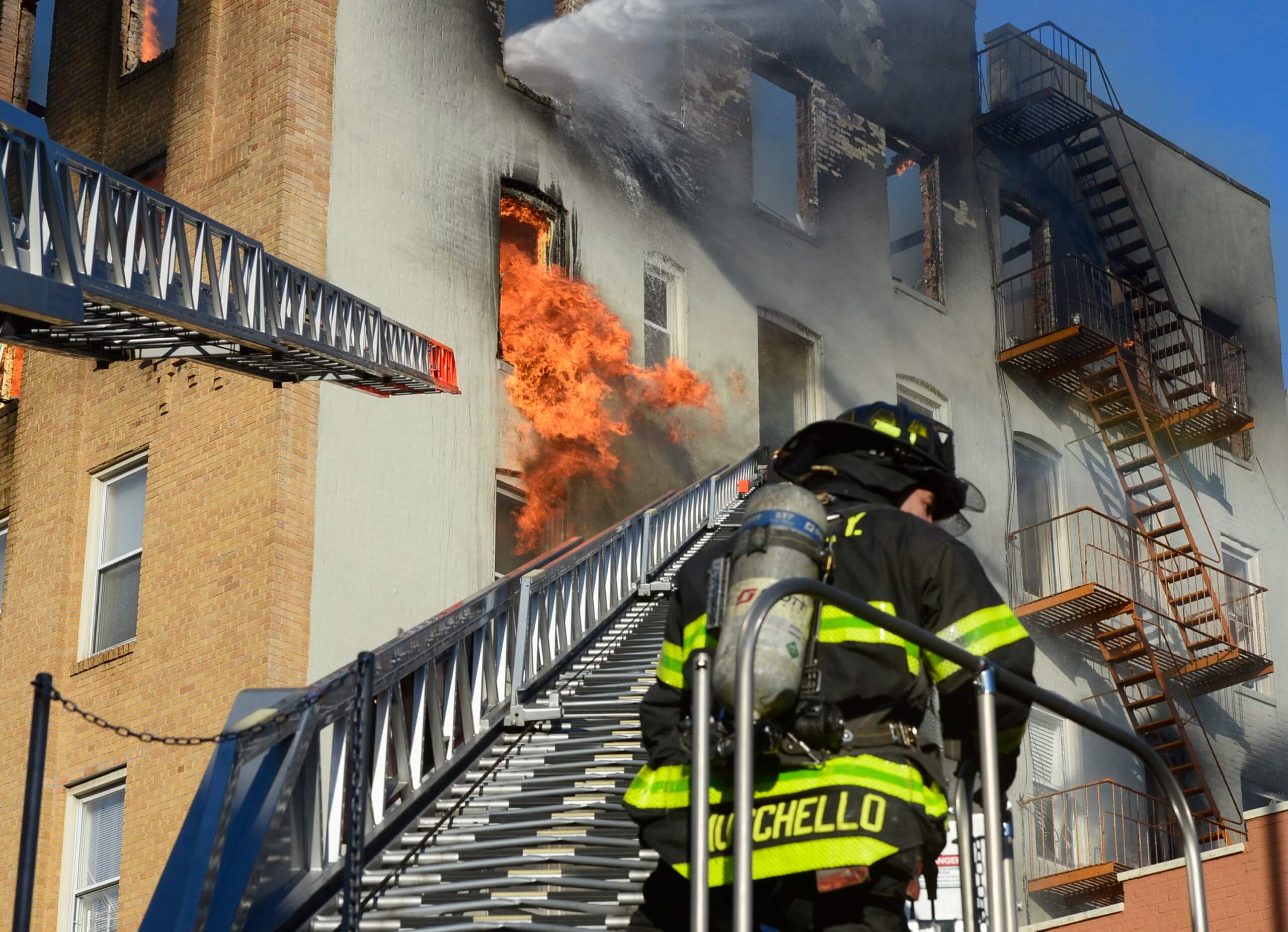
“One of our strengths is the tremendous pride firefighters have – the patch identifies where they work and nobody wants to let their unit down,” Nigro said. “There are 17,000 people in the Fire Department and while you can’t feel the closeness to 17,000 people, there is that pride that is part of what makes people push beyond what would be normal limits.”
Nigro rose through the ranks in the FDNY, fighting fires in Manhattan tenements as his father did in his 33 years as a firefighter. But Nigro rose through the ranks from a firefighter to eventually to a chief, then to higher ranks in the department, including administrative positions at fire headquarters in the old Livingston Street building (the current headquarters is at MetroTech in Brooklyn). During his ascent, he honed his managerial skills and an understanding of how the department functions both during emergencies and in the back office.
Coping with tragedy
He also learned to deal with loss and keep a steady head during times of tragedy. The year 2001 was the toughest Nigro would endure.
On Father’s Day, June 17, 2001, an explosion at a hardware store in Queens killed three members of the FDNY: Firefighters Harry S. Ford and Brian D. Fahey of Rescue 4 and John J. Downing of Ladder 163.
As Chief of Operations at the time, Nigro said he responded to the explosion and assisted n the recovery of the three firefighters who were in the building when paint cans and other combustibles ignited.
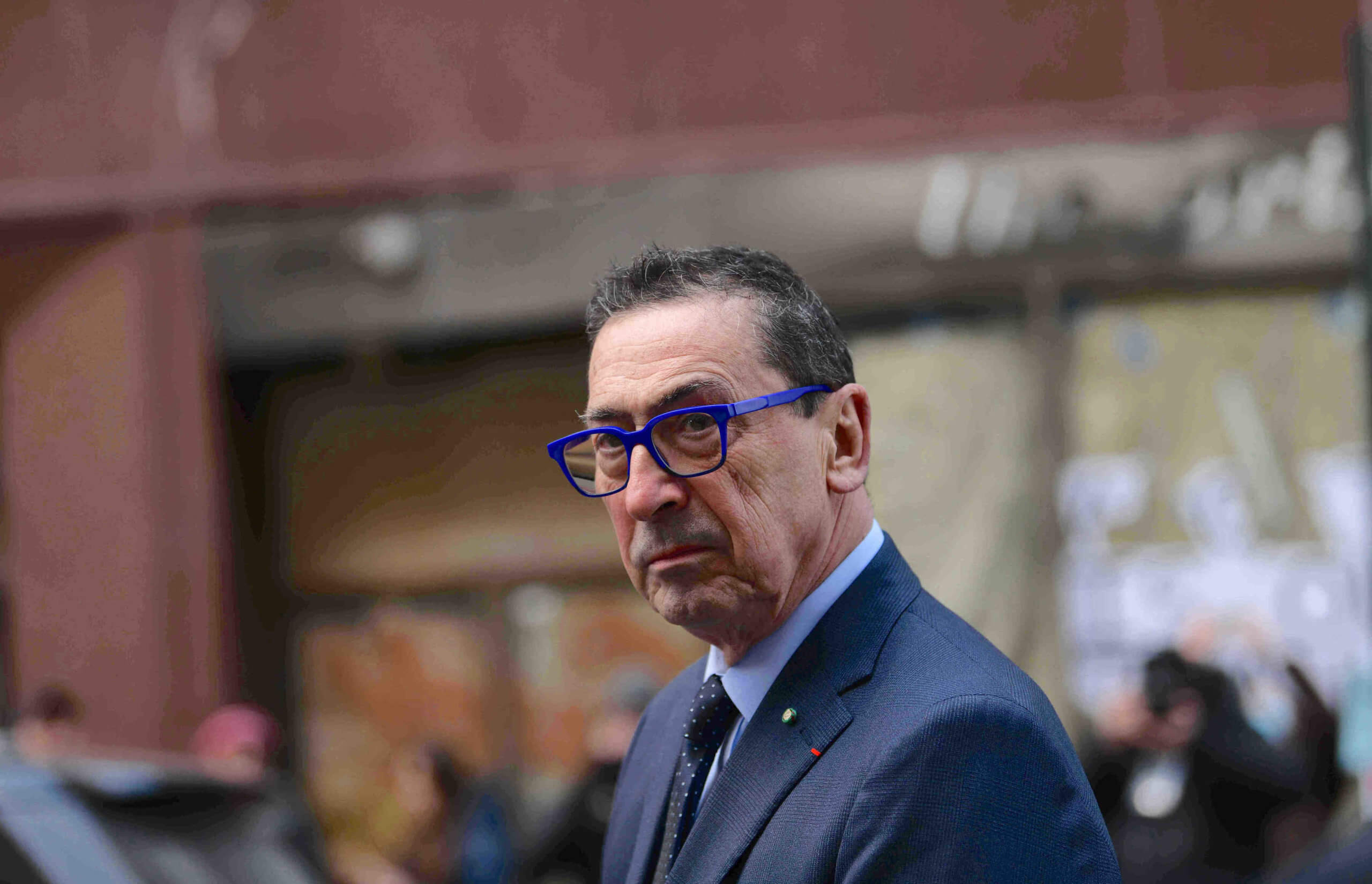
While some firefighters had a tough time dealing with the loss, Nigro had to keep a clear head to maintain a cohesive team.
The real test would come on 9/11 when Nigro would have to pull the department together when most of the top line commanders were killed in the collapse of the World Trade Center.
Nigro responded that day with Chief Ganci – having seen the crash from their offices in Brooklyn. They arrived on site and established a mobile command center on West Street opposite the north tower. As they were distributing command assets on the west side of West Street, the second plane hit the south tower.
“I knew this was a terrorist attack,” he said.
Nigro then went to assess the damage on the opposite side on Church Street with an aide, consulting with an EMS commander on the ground about casualties and people who jumped 100 stories. It’s then that the south tower collapsed, debris coming towards them, forcing them and everyone else to run. It was shortly after surviving in a doorway of the nearby Millennium Hotel that nobody at the command center on West Street was responding on the radio – killing nearly everyone present there.
After the second collapse, Nigro found himself the ranking surviving uniformed commander on the ground after Chief Ganci, Chief Burns and Deputy Commissioner Michael Fahey were killed in the collapse. He had to hold it together with his remaining commanders for months of recovery operations for the thousands of people from the towers, as well as the 343 firefighters who were lost.
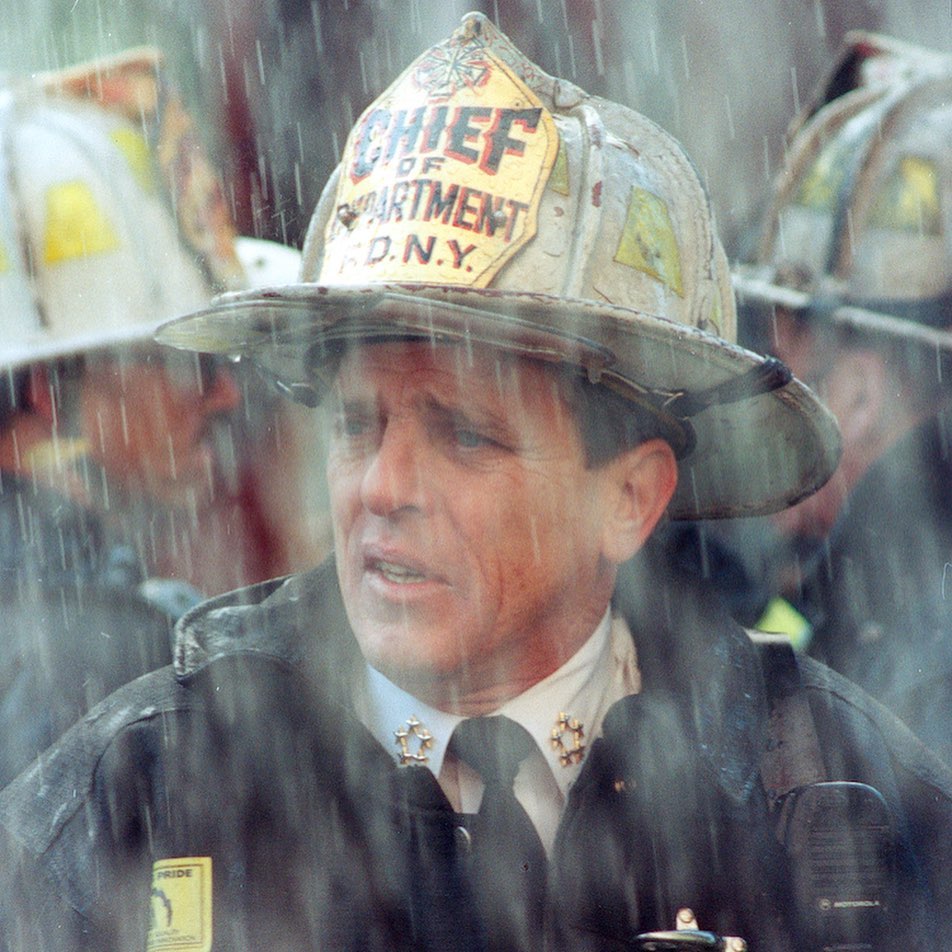
Nigro eventually went home that night to his family, took a shower and was back with his department at 11:30 p.m. ready to lead.
Subsequently, hundreds died from exposure to 9/11 dust, Nigro himself suffers to this day from respiratory issues as a result of his exposure.
“I think we all of us know we have job to do, especially on the 11th when it became part of you,” Nigro said. “A bigger part of you knows people depend on you and they depend on me. Even after second tower came down so much had to be done, you just had to do what had to do and we had a great team – many people stepped up on the 11th and it showed how strong it was. You try to just show strength, and you keep that sadness, but you keep it in background.”
“I had a life before 9/11 and then another life after 9/11 – it was a dividing line that all of us are fortunate, but I remember with a bit of sadness every day.”
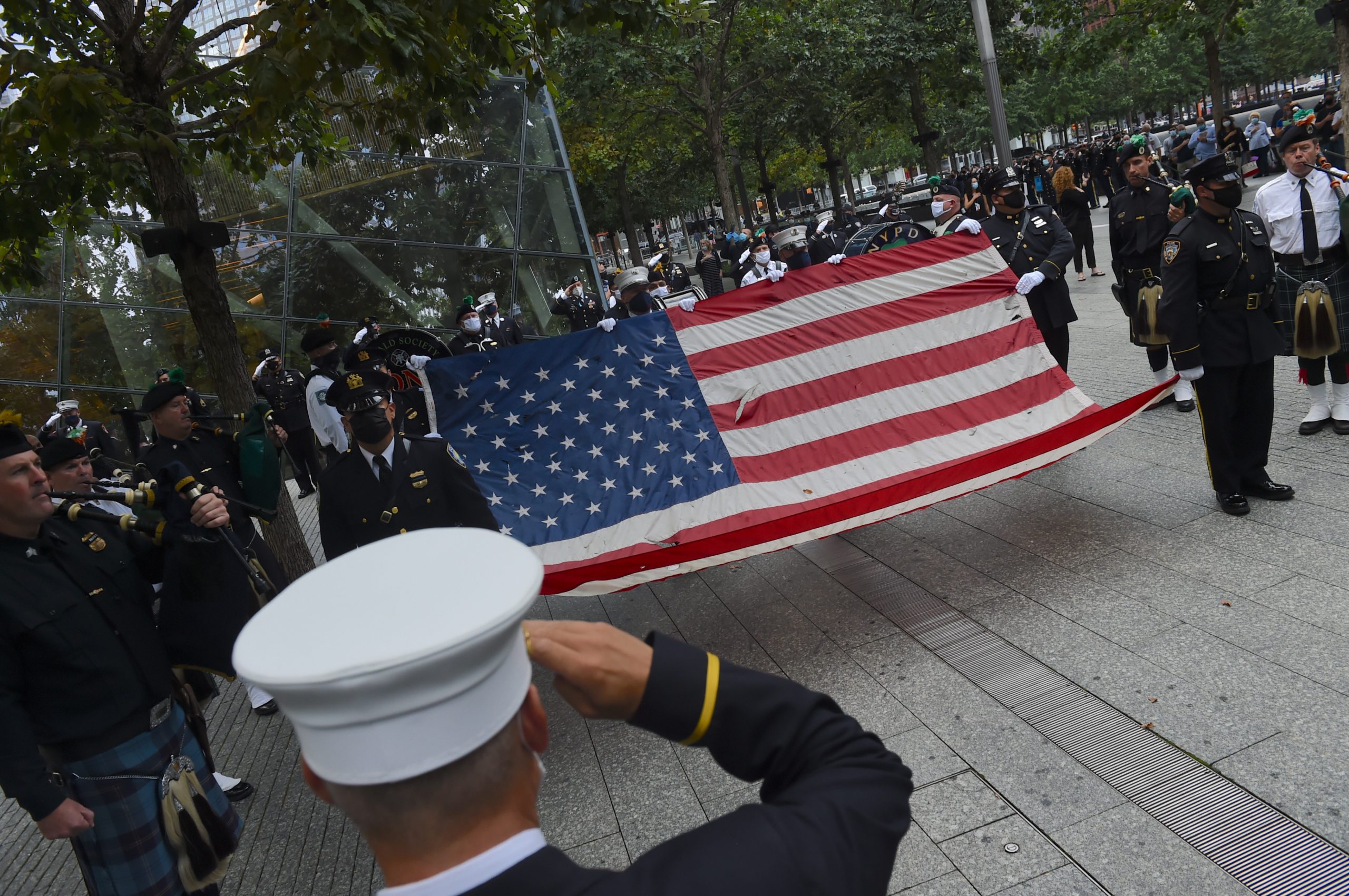
FDNY evolves
In those 53 years, the FDNY evolved, with greater diversity becoming a bigger part of the firefighting. It was a difficult adjustment for some in the department – especially when women came onto the job. Many in the firehouse were against working alongside women and even firefighters’ wives protested against the change, some saying it put their husbands at greater risk.
Then came Captain Brenda Berkman who was the sole named plaintiff of a precedent-setting lawsuit that forced the issue in 1982, but had to bare resentment among her male counterparts. Rochelle “Rocky” Jones who’s father was a firefighter, rose to the rank of Battalion Chief. Firefighter Eileen Gregan was assigned as a battalion firefighter to the same firehouse.
Today, Nigro is flanked by Deputy Commissioner Kavanagh, Chief of Staff Elizabeth Cascio and Deputy Commissioner for Legal Affairs Brown. There are also now 49 women firefighters and many more EMS paramedics and emergency medical technicians that are part of FDNY as a result of the merger of the two agencies in 1996.
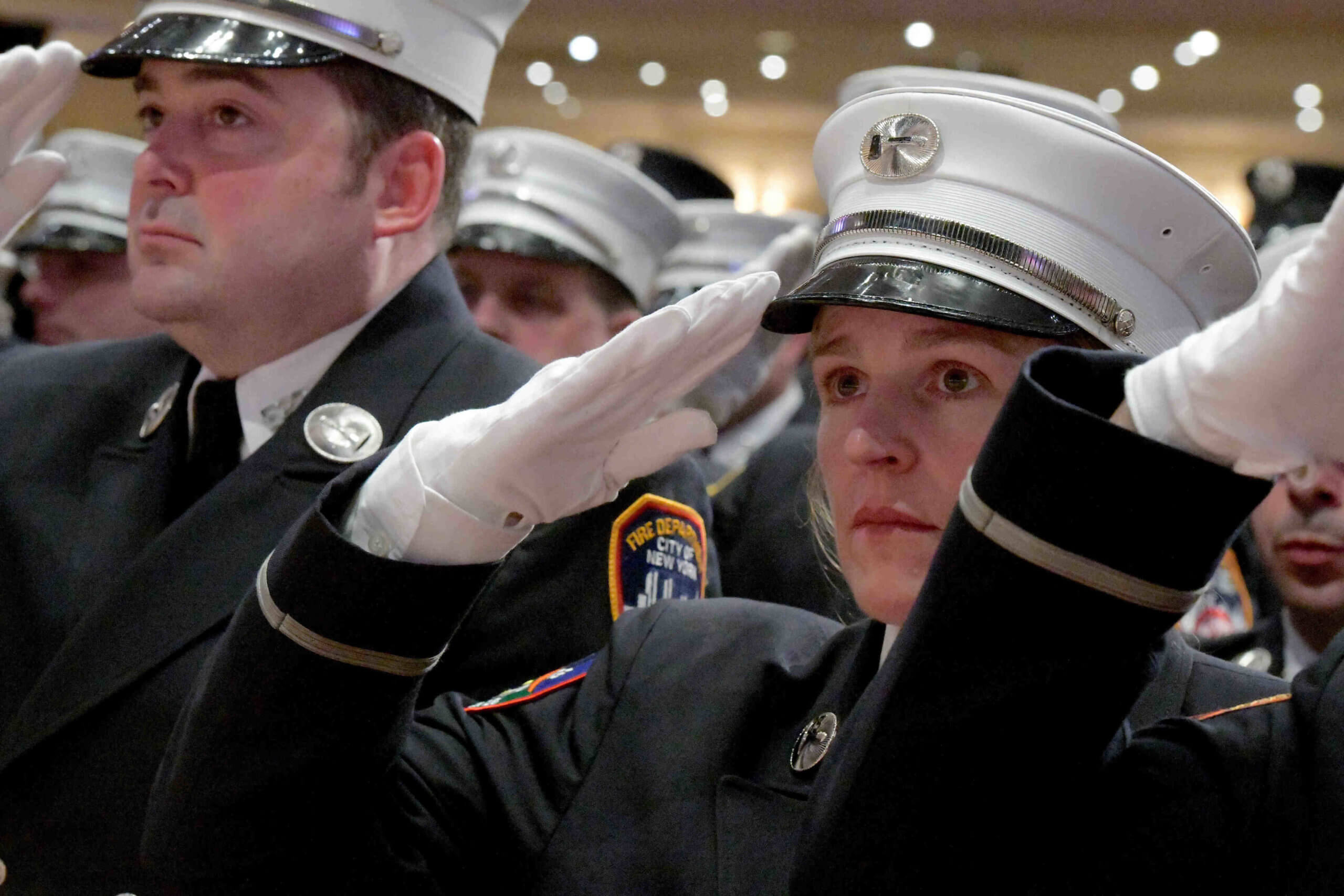
“My feeling was, let’s see how they do – don’t judge them before you see,” Nigro recalled. “Some people jumped to conclusions, but things worked out which shows we should give people a chance before judge them. Rocky and Eileen are my heroes – they put up with a lot more than any of us had to put up with and they are in reality wonderful people. I wasn’t overly surprised, but I was pleased to see people do well, and some early firefighters got promoted, became role models. Some still having a difficult time in a world of mostly men, I wouldn’t know how it feels and it’s not easy – they do it, and do it well very proud of this department.”
He also applauded the women of EMS, where there are almost 1,000 female members.
“They certainly have made the department better – there is nothing like diversity and getting different opinions from different backgrounds – a different way of thinking. People think this is a rigid environment, but it has changed over the years.”
As for who might replace him, Nigro points out there have been commissioners from “all walks of life” and it is “not a requirement to be a firefighter.”
“What I would tell the next commissioner is that they are the luckiest person in New York to commissioner of the FDNY – a great honor,” he said. “Two things you have to realize is the job is to serve the people of New York and to support the members of the department to perform to the bet of the ability. It’s not a simple basic principle as opposed to other ranks. The commissioner serves the public ,but to do that, the members have to know you support them.”
“I think the last advice – I will wish them luck and tell them they really they are fortunate to be in this very special agency, to be named fire commissioner. I felt that way and I will feel that way for rest of my life.”
Nigro looks forward to Sunday dinner’s in his home in Queens with his wife Lynn and the family who he says live in the area, being a role model to his two son-in-laws who are firefighters and going to Disney.
“Perhaps when I retire, I might try golf again,” he sighed.
